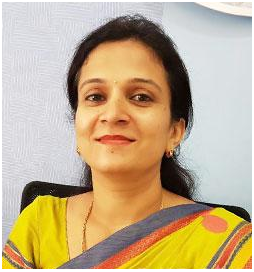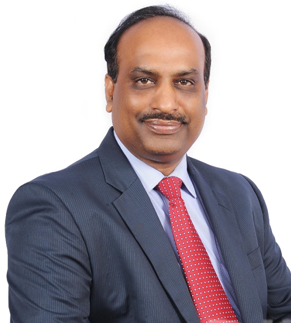Azoospermia is a condition where a man’s ejaculate does not contain any sperm. It is one of the major causes of male infertility and can result from blockages in the reproductive tract, hormonal imbalances, ejaculatory issues, or testicular structural or functional problems.
At our fertility center offering advanced Azoospermia treatment in Bangalore, our specialists focus on identifying the root cause and providing effective, personalized treatments to help restore fertility. In many cases, azoospermia is treatable, and live sperm can often be retrieved for use in assisted reproductive technologies (ART) such as IVF (In Vitro Fertilization) or ICSI (Intracytoplasmic Sperm Injection).
Azoospermia affects approximately 10% of infertile men and about 1% of all men. To visualize this, imagine a stadium of 50,000 menaround 5,000 may experience infertility, and roughly 500 of them could be affected by azoospermia.
There are several potential causes of azoospermia, ranging from genetic to lifestyle-related factors. Common causes include:
Genetic conditions such as Klinefelter’s syndrome
Past medical treatments, including chemotherapy or radiation therapy
Recreational drug use, particularly narcotics or anabolic steroids
Anatomical abnormalities such as varicocele or congenital absence of the vas deferens
Vasectomy, which intentionally blocks the passage of sperm
Hormonal imbalances affecting sperm production
Environmental toxins or developmental issues that impair testicular function
In some cases, the exact cause of azoospermia may not be immediately clear and requires advanced diagnostic tests such as semen analysis, hormone testing, and genetic evaluation all of which are available as part of our Azoospermia treatment in Bangalore program.
Azoospermia often shows no obvious symptoms, and many men discover the condition only after struggling to conceive. However, symptoms can vary depending on the underlying cause.
Common signs may include:
Low sex drive
Erectile dysfunction
Swelling, lump, or discomfort around the testicles
Reduced facial or body hair (indicating hormonal imbalance)
If you experience these symptoms or have been unable to conceive despite trying for over a year, it’s important to consult a specialist for Azoospermia evaluation and treatment in Bangalore.
There are two primary types of azoospermia, and the treatment approach depends on which type is diagnosed:
Obstructive Azoospermia – Caused by blockages or missing connections in the reproductive tract that prevent sperm from reaching the semen.
Non-Obstructive Azoospermia – Caused by impaired sperm production in the testicles.
Our experienced fertility specialists in Bangalore perform detailed assessments to determine the exact type and recommend the best possible treatment.
Obstructive azoospermia can often be treated successfully through:
Microsurgical reconstruction or reanastomosis, where the blocked ducts are reconnected.
Sperm retrieval procedures such as TESA (Testicular Sperm Aspiration) or PESA (Percutaneous Epididymal Sperm Aspiration) for use in IVF/ICSI.
Non-obstructive azoospermia may or may not respond to medical treatment, depending on the severity of testicular dysfunction. However, there are still promising options such as:
Hormonal therapy to stimulate sperm production.
Micro-TESE (Microsurgical Testicular Sperm Extraction) to locate and retrieve viable sperm directly from testicular tissue.
Assisted Reproductive Technologies (ART), including IVF or ICSI, using retrieved sperm to achieve pregnancy.
At our center for Azoospermia treatment in Bangalore, we combine advanced diagnostics, expert surgical techniques, and personalized fertility care to maximize the chances of conception.
While azoospermia can be a challenging condition, many men can still achieve biological fatherhood with the right medical support. With modern fertility advancements such as sperm retrieval techniques and ICSI, even men with non-obstructive azoospermia have renewed hope for successful conception.
Our fertility specialists in Bangalore provide a comprehensive treatment plan, continuous guidance, and emotional support throughout the journey to help couples achieve their dream of parenthood.

MBBS, MD – OBG, Fellowship in Reproductive Medicine
Fertility Specialist with 22+ years of experience

MBBS, MD - Obstetrics & Gynaecology
Speciality : Infertility Specialist, Gynecologist, Obstetrician Experience : 22+ Years Experience Languages spoken : English, Kannada ,Hindi , Marathi

MBBS, MD - Obstetrics & Gynaecology

MS - General Surgery, MCh - Urology/Genito-Urinary Surgery, DNB - Urology/Genito - Urinary Surgery, MNAMS - General Surgery, FRCS - General Surgery, MBBS
Speciality : Infertility Specialist, Gynecologist, Obstetrician Experience : 22+ Years Experience Languages spoken : English, Kannada ,Hindi , Marathi

MS - General Surgery, MCh - Urology/Genito-Urinary Surgery, DNB - Urology/Genito - Urinary Surgery, MNAMS - General Surgery, FRCS - General Surgery, MBBS

A thorough evaluation involving medical history, physical exams, and diagnostic tests to identify causes of infertility in both partners. This helps tailor personalized treatment plans to improve chances of conception

Medical treatment using fertility drugs to stimulate the ovaries to release eggs regularly, especially helpful for women with irregular or absent ovulation. It is often combined with timed intercourse or intrauterine insemination to enhance pregnancy chances

Minimally invasive surgical procedures used to diagnose and treat conditions like endometriosis, fibroids, polyps, and adhesions that may impair fertility. These surgeries help restore normal reproductive anatomy and improve fertility outcomes

Comprehensive assessment including semen analysis, hormone testing, and sometimes genetic screening to identify issues affecting sperm quality, quantity, or function. Advanced techniques like sperm DNA fragmentation tests and micro-TESE may be used for diagnosis and treatment planning

In vitro fertilization (IVF) involves fertilizing eggs with sperm in a lab, while intracytoplasmic sperm injection (ICSI) injects a single sperm directly into an egg, often used for severe male infertility. The resulting embryos are cultured and then transferred to the uterus to achieve pregnancy

A procedure where previously frozen embryos from an IVF cycle are thawed and transferred into the uterus to establish pregnancy. This allows multiple attempts at pregnancy without undergoing full ovarian stimulation again
Trustindex verifies that the original source of the review is Google. It's a gods grace to meet Dr.Indu Madhusudhan, our life has changed completly because of her advices, I am conceived now and expecting a baby in few days. She is extremely patient friendly, polite and smiling in addressing all our concerns. More to it she also made us feel comfortable in communicating freely during the appointments. I would say she is one of the top most gynaecologist with impeccable knowledge. Thank you mam for utmost care and advices.Trustindex verifies that the original source of the review is Google. Very good consultation...and preferableTrustindex verifies that the original source of the review is Google. I have known Dr.Indu for over a year now. She is extremely kind and helpful. Patiently addressed all our concerns. She has such a positive aura which is calming. She has been of great support in my pregnancy journey! I am so glad to have consulted her. Thank you, Doctor.Trustindex verifies that the original source of the review is Google. Extremely kind and empathetic. carefully investigates your entire history and explains the options available. Doctor is very transparent and knowledgeable. She also has a soothing aura. Definitely recommend to anyone trying for a baby.Trustindex verifies that the original source of the review is Google. Doctor is very professional and friendly. I am so grateful to have met her. 🙂🙏Trustindex verifies that the original source of the review is Google. We are thankful to Dr.Indu for always being there for us. Throughout our infertility journey she gave us hope and encouraged us to not give up. We really appreciate her knowledge, friendliness and frankness. Her calm demeanour and constant guidance helped us keep calm through our challenging pregnancy and emergency c-section. She has not just been our doctor but also a friend and a guide.Google rating score: 5.0 of 5, based on 31 reviewsVerified by TrustindexTrustindex verified badge is the Universal Symbol of Trust. Only the greatest companies can get the verified badge who has a review score above 4.5, based on customer reviews over the past 12 months. Read more
Before your first appointment, one of our clinical care coordinators will call you to discuss your case and review what appointments to expect. The clinical care coordinator will make sure all appointments are arranged in a timely fashion. Each of our patients is unique and treated individually, and the schedule of doctors you see will be tailored specifically to your needs. The doctors will discuss your care options with you and answer any questions that you may have regarding your diagnosis and management.
Azoospermia affects about 1% of all men and around 10% of men experiencing infertility. It’s one of the most significant causes of male infertility worldwide.
We are dedicated to helping pregnant women and their families after a significant birth defect or genetic condition has been detected. Specialists from both obstetrics and pediatrics work together as a team to determine the best way to care for you and your unborn baby, both during and after your pregnancy.
Whenever possible, we create an integrated appointment plan, so that you can meet with the multiple subspecialists involved in your case. Some patients come here for a second opinion and go back to their obstetrician. Other patients transfer their care to Columbia as their delivery date approaches to make sure their baby immediately receives the necessary specialized pediatric care after birth.
Common causes include genetic disorders like Klinefelter’s syndrome, hormonal problems, prior surgeries such as vasectomy, exposure to radiation or toxins, infections, and congenital issues like the absence of vas deferens.
Azoospermia diagnosis typically involves:
Semen analysis to confirm the absence of sperm.
Hormone testing to evaluate testosterone and FSH levels.
Ultrasound or MRI scans to identify blockages or abnormalities.
Genetic testing in select cases.
Treatment depends on the underlying cause and may include:
Microsurgery to remove blockages in obstructive azoospermia.
Hormonal therapy to stimulate sperm production.
Sperm retrieval procedures like TESA, PESA, or Micro-TESE.
IVF or ICSI using retrieved sperm for conception.
Yes, with advanced treatments such as ICSI (Intracytoplasmic Sperm Injection) and sperm retrieval techniques, many men with azoospermia have successfully fathered biological children.
We are leading doctors in gynecology and urology fell free to take and appointment with us.